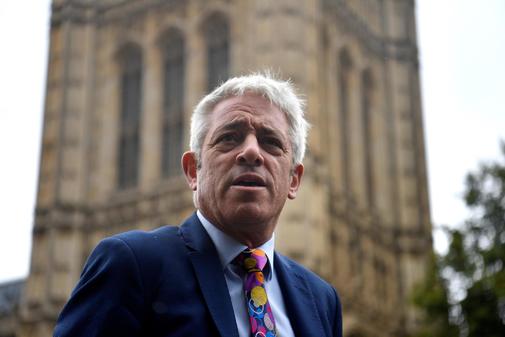The president of the House of Commons, John Bercow, and the British premier, Boris Johnson, will live a new pulse for control of the political agenda of the United Kingdom now that the Supreme Court has declared Johnson's parliamentary extension illegal.
The speaker stated that Parliament must be reopened as soon as possible. If Johnson decided not to summon Parliament again before October 14, Bercow would be key, since according to Lord Pannick, the prosecution attorney, he has the power to skip Downing Street's authority by availing himself of the Supreme Court ruling to reverse measure.
Bercow, therefore, is the only representative of the political power with the power to confront the prime minister and force him to abide by the laws, further reinforcing after this ruling of the Supreme the importance of his position. The pressure on him has been such in recent years, especially for his defense of the permanence in the European Union, that the famous 'speaker' recently announced his intention to resign on October 31.
Succession
In the first days of November, the British Parliament will face the difficult mission of replacing one of the most influential and reformist presidents of the House in its recent history, as well as one of the most important allies of those who want to avoid a hard Brexit. All that, however, could change according to the profile of his successor.
The president of the Chamber has the mission of directing the parliamentary debates, giving the floor to the deputies and coordinating the times in which the voting takes place. Traditionally, they are required to renounce their membership in the party they belong to in an attempt to protect their neutrality, which they must maintain even after they leave office.
The lights and shadows left by Bercow, one of the great modernizers of the post and at the same time a person accused of being a "bully" and of exceeding his duties, now raise the question of the profile that the House of Commons should look for.
Ovated by the opposition
For the moment, what the former member of the Conservative Party has achieved, which however was applauded by the opposition, is that it is this House and not a result of a new election that chooses its successor. The current parliamentarians are mostly opposed to an exit without agreement, so a winner close to this ideology is expected, although the degree of interventionism he decides to have will be almost more important.
One of the candidates for the job, Edward Leigh, has already said, for example, that he wants to be a traditional 'speaker' who doesn't talk much.
After the announcement of the resignation of Bercow, the date for the election of his substitute has been set for November 4 , and this will be carried out through a secret voting system for rounds that could end at the time when Some of the candidates get more than 50% of the support.
The main candidates already knew that Bercow would not stay far beyond the summer, and two veteran names within the Labor force resonate right now: that of Lindsay Hoyle , 62 and number two of the current president of the House, and the by Harriet Harman , 69, and former leader of the House of Commons. Hoyle has an experience close to the nine-year position, but some prefer that a breath of fresh air enter. That promises Harman, who, despite having campaigned for permanence in the EU, has already assured that he intends to be "scrupulously neutral."
According to the criteria of The Trust Project
Know more- United Kingdom
- Boris johnson
United KingdomCism between hawks and pigeons 'tories'
United KingdomThe British Parliament says 'No' to the Boris Johnson elections
United Kingdom Boris Johnson, cornered after his triple parliamentary defeat

